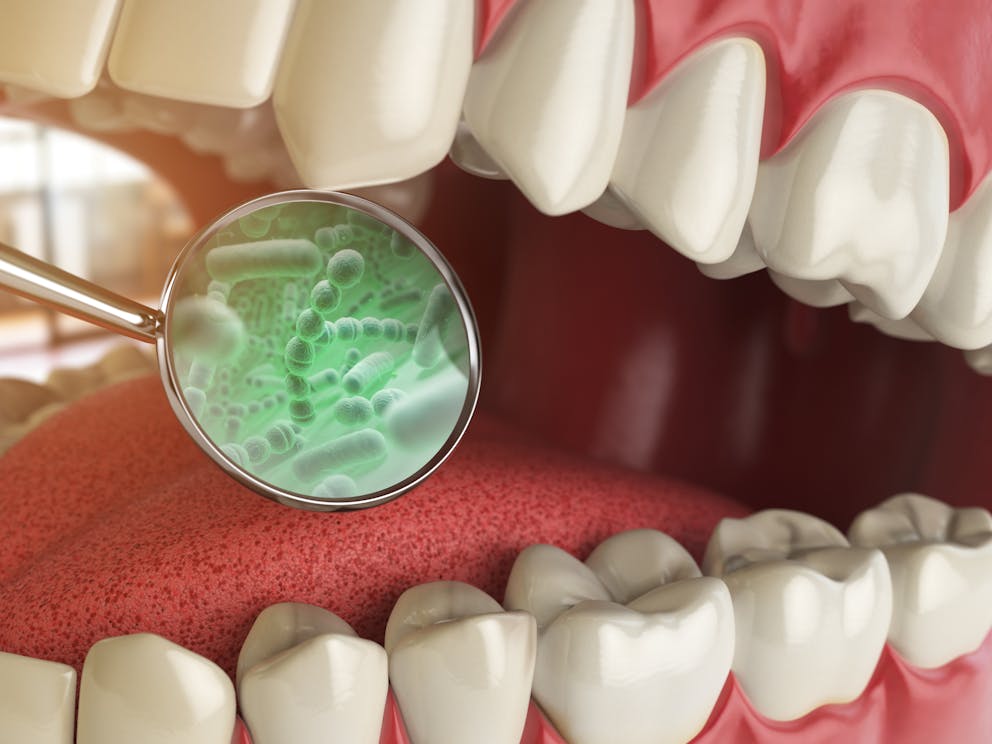Think Twice About Drinking Tap Water

4 Dangerous Ingredients to Avoid – Wallet Cutout Card
Identify harmful ingredients hidden in processed foods
Learn to recognize and identify these ingredients on food labels
Get a practical wallet cutout for quick reference while shopping or dining out

4 Dangerous Ingredients to Avoid – Wallet Cutout Card
Identify harmful ingredients hidden in processed foods
Learn to recognize and identify these ingredients on food labels
Get a practical wallet cutout for quick reference while shopping or dining out

4 Dangerous Ingredients to Avoid – Wallet Cutout Card
Identify harmful ingredients hidden in processed foods
Learn to recognize and identify these ingredients on food labels
Get a practical wallet cutout for quick reference while shopping or dining out

4 Dangerous Ingredients to Avoid – Wallet Cutout Card
Identify harmful ingredients hidden in processed foods
Learn to recognize and identify these ingredients on food labels
Get a practical wallet cutout for quick reference while shopping or dining out

4 Dangerous Ingredients to Avoid – Wallet Cutout Card
Identify harmful ingredients hidden in processed foods
Learn to recognize and identify these ingredients on food labels
Get a practical wallet cutout for quick reference while shopping or dining out

4 Dangerous Ingredients to Avoid – Wallet Cutout Card
Identify harmful ingredients hidden in processed foods
Learn to recognize and identify these ingredients on food labels
Get a practical wallet cutout for quick reference while shopping or dining out

4 Dangerous Ingredients to Avoid – Wallet Cutout Card
Identify harmful ingredients hidden in processed foods
Learn to recognize and identify these ingredients on food labels
Get a practical wallet cutout for quick reference while shopping or dining out

21 Ways to Reduce Your Cancer Risk
Learn about evidence-based strategies to lower your risk of cancer
Understand the role of nutrition, sleep, and exercise in cancer prevention
Discover the dietary and lifestyle changes that make a difference
Recognize and avoid common cancer risk factors
Get practical tips on incorporating cancer-fighting foods into your daily life

21 Ways to Reduce Your Cancer Risk
Learn about evidence-based strategies to lower your risk of cancer
Understand the role of nutrition, sleep, and exercise in cancer prevention
Discover the dietary and lifestyle changes that make a difference
Recognize and avoid common cancer risk factors
Get practical tips on incorporating cancer-fighting foods into your daily life

21 Ways to Reduce Your Cancer Risk
Learn about evidence-based strategies to lower your risk of cancer
Understand the role of nutrition, sleep, and exercise in cancer prevention
Discover the dietary and lifestyle changes that make a difference
Recognize and avoid common cancer risk factors
Get practical tips on incorporating cancer-fighting foods into your daily life

21 Ways to Reduce Your Cancer Risk
Learn about evidence-based strategies to lower your risk of cancer
Understand the role of nutrition, sleep, and exercise in cancer prevention
Discover the dietary and lifestyle changes that make a difference
Recognize and avoid common cancer risk factors
Get practical tips on incorporating cancer-fighting foods into your daily life

21 Ways to Reduce Your Cancer Risk
Learn about evidence-based strategies to lower your risk of cancer
Understand the role of nutrition, sleep, and exercise in cancer prevention
Discover the dietary and lifestyle changes that make a difference
Recognize and avoid common cancer risk factors
Get practical tips on incorporating cancer-fighting foods into your daily life

21 Ways to Reduce Your Cancer Risk
Learn about evidence-based strategies to lower your risk of cancer
Understand the role of nutrition, sleep, and exercise in cancer prevention
Discover the dietary and lifestyle changes that make a difference
Recognize and avoid common cancer risk factors
Get practical tips on incorporating cancer-fighting foods into your daily life

21 Ways to Reduce Your Cancer Risk
Learn about evidence-based strategies to lower your risk of cancer
Understand the role of nutrition, sleep, and exercise in cancer prevention
Discover the dietary and lifestyle changes that make a difference
Recognize and avoid common cancer risk factors
Get practical tips on incorporating cancer-fighting foods into your daily life
While water is of course, an unavoidable necessity for human health, it is important to know that the type of water you drink can make a big difference in your overall well-being.
Learn about tap water, what's inside it, and the best way to stay hydrated for your health.
The Hidden Dangers in Your Tap Water
Think your tap water is safe? Think again. There's more than meets the eye regarding what flows from our faucets, where contaminants are often out of sight and out of mind.
Estrogen's Effect on Hormonal Balance
Elevated estrogen levels in tap water can cause significant consequences to your hormonal health.
For men and women alike, this imbalance may dial down testosterone and crank up the risk for estrogen dominance, stirring up all sorts of trouble for our endocrine systems.

Fluoride's Impact Beyond Dental Health
Sure, fluoride fights cavities, but did you know it might also harm your thyroid? Some studies suggest that too much fluoride could put a chokehold on thyroid function while also roughing up skin health.
Chloramine as a Persistent Contaminant
Last but certainly not least: chloramine. This disinfectant is resilient against traditional filtration methods—and may damage our respiratory system.
Filtering these unwelcome visitors can be crucial. Experts recommend exploring different water filters because knowing what’s coming through those pipes might prevent your hormones and overall health from taking an unexpected dive.
Regulatory Oversights and Health Implications
The water flowing from your tap might not be as safe as you think. The legal limits for tap water contaminants have not been checked in two decades.
While technology has advanced dramatically, our standards for water safety are stuck in the past.
Outdated Standards for Water Safety
You heard it here first: no significant updates to federal guidelines on what’s considered 'safe' levels of toxins in our drinking water have occurred in two decades. We're using old-school rules to fight against modern-day pollutants.
Sure, we trust authorities to keep our H2O clean, but with science constantly evolving, isn't it time we refresh guidelines? Just imagine how much research has emerged over 20 years.
Alarming Levels of Toxic Chemicals in Tap Water
Recent analyses have uncovered that substances like bromodichloromethane are at concentrations 52 times higher than health experts recommend. Thinking about the invisible threats we might be gulping down with each glass is unsettling.
The Widespread Presence of Nitrates
Nitrate levels aren’t lagging far behind on the danger scale either—they've been caught at tenfold their recommended limits. These stats show that taking action against such rampant contamination is not just wise but essential for safeguarding one's health.
The Threat of Total Trihalomethanes (TTHMs)
Tap water is often laced with chemicals called total trihalomethanes or TTHMs. These byproducts form when disinfectants used to treat public water react with natural organic matter in the water.
Tests have found TTHM levels soaring to 306 times above what many experts consider safe.
What does this mean for your health? Long-term exposure has been linked to increased cancer risk, problems during pregnancy, liver issues, and more.
To give this some context without getting too sciencey on you, these aren't just numbers on a page; they're potential warning signs flashing red about our tap water safety.

Mitigating Risks Through Water Filtration
Imagine a world where tap water could do more than quench your thirst. That's the power of effective water filtration—it turns an ordinary glass of H2O into a health-promoting elixir.
Choosing the Right Water Filter
You've got options: pitchers with filters, under-sink systems, or whole-house systems.
If lead leaches into local pipes, get a certified filter to handle heavy metals.
If these choices have you scratching your head, don't fret; expert recommendations can guide you to the best filter for your home. And remember, changing those filters regularly isn’t just good housekeeping; it’s keeping up defenses against unseen threats.
Dangers and Unpacking the Electrolyte Question
Embark on a revealing exploration of tap water, unraveling its potential dangers and addressing the fundamental query: does water have electrolytes?
This subtopic sheds light on the safety considerations surrounding tap water consumption, delving into the essential role of electrolytes and whether tap water inherently contains these vital elements.
Navigating this dual inquiry offers valuable insights for individuals keen on understanding the intricacies of tap water while contemplating the presence of electrolytes in this ubiquitous source.
Conclusion
While water is essential for human health, the quality of your drinking water is crucial.
Tap water often contains hidden contaminants like elevated estrogen, excessive fluoride, and chloramine, which can disrupt hormonal balance, thyroid function, and respiratory health.
Regulatory standards for water safety are outdated, allowing for high levels of toxic chemicals that pose significant health risks. Investing in a reliable water filtration system can help mitigate these dangers.
By staying informed and choosing the right water filter, you can ensure your water is safe and enhance your overall well-being.
Previous blog
Keto Induces Cardiac Fibrosis GOSH DARN ITNext blog
Tired From Not Enough Salt? Here's WhyTags

Popular
08/21/2024
55.7K views
02/23/2025
46.8K views
11/18/2024
281.1K views
03/18/2024
11/21/2022




